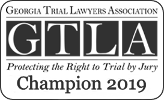In 1964, the United States witnessed a monumental shift in civil rights with the passage of the Civil Rights Act. This legislation aimed to eradicate racial discrimination in public establishments, marking a crucial step towards equality. However, the journey towards justice faced resistance, as exhibited by the Heart of Atlanta Motel’s challenge to the Act.
Located on 255 Courtland Street in downtown Atlanta, the Heart of Atlanta Motel was a prominent establishment owned by Moreton Rolleston, Jr., an attorney known for his strict segregationist views. Despite its reputation as one of the East Coast’s finest accommodations, the motel became caught in a legal battle against the federal government. Rolleston sought to contest the Act’s authority under the Commerce Clause, arguing against its prohibition of racial discrimination within the motel’s premises.
This dispute later marked the landmark case of Heart of Atlanta Motel, Inc. v. United States, heard by the Supreme Court in 1964. At the heart of the matter was the constitutional question of whether Congress had the power to regulate racial discrimination in public accommodations. In a unanimous decision, the Supreme Court refuted the motel’s arguments, asserting that its engagement in interstate commerce rendered it subject to federal regulation. By extending Congress’s authority over local activities with significant interstate implications, the Court affirmed the Act’s constitutionality and its power to combat systemic bigotry.
The significance of this ruling spread far beyond Atlanta’s borders. It served as a catalyst for dismantling segregation throughout the South, challenging businesses to confront their discriminatory practices. Establishments could no longer hide behind the guise of local autonomy to perpetuate injustice. The legacy of Heart of Atlanta Motel v. United States stands as a testament to the resilience of the civil rights movement and the transformative power of the law in advancing societal change.












